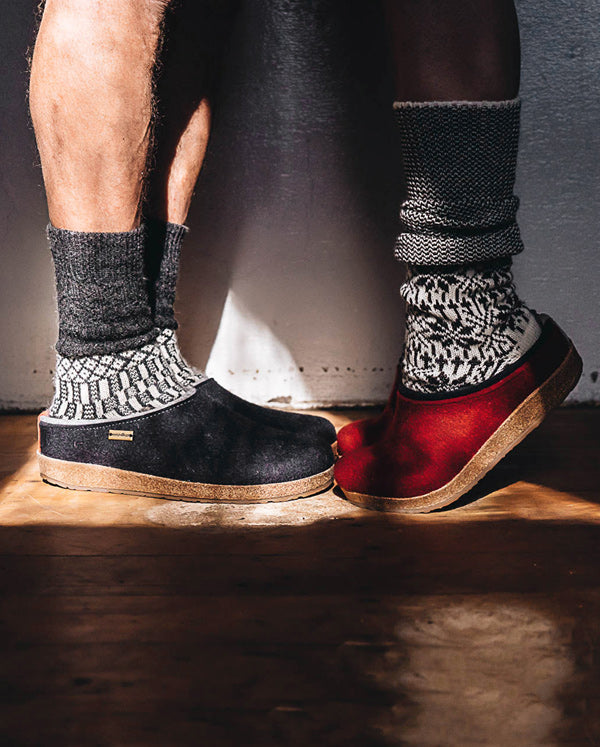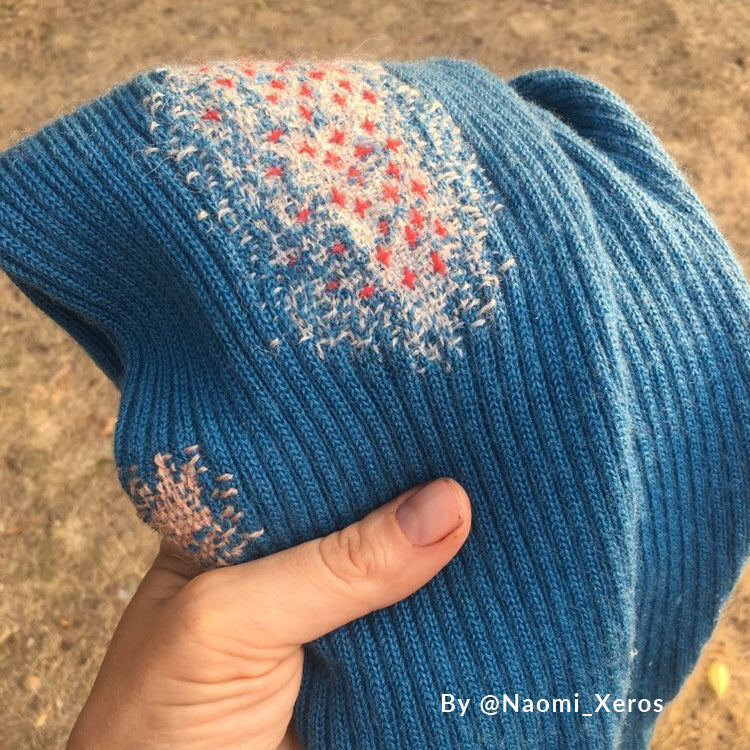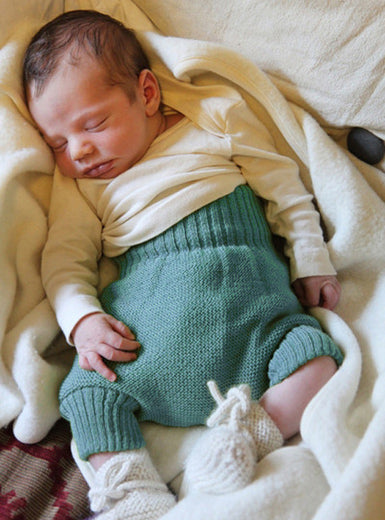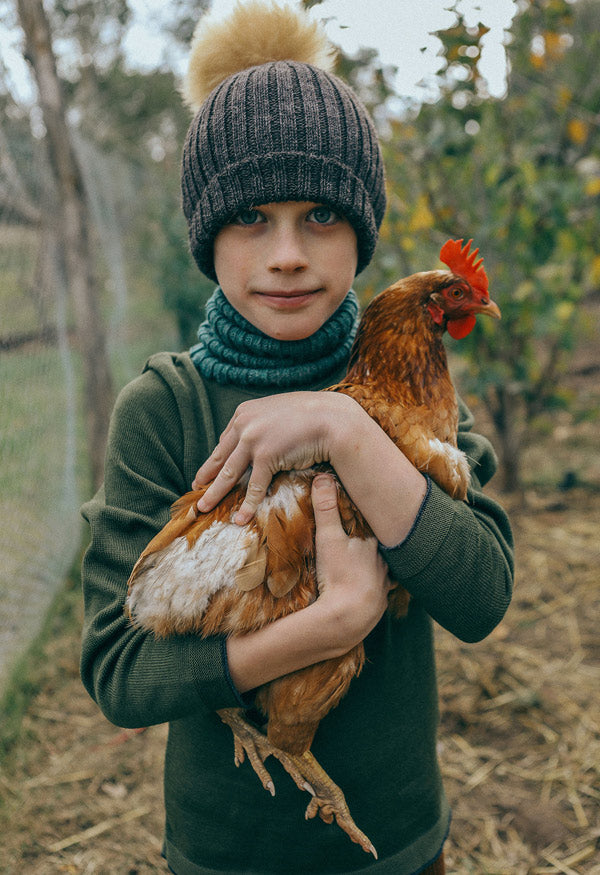Your Cart is Empty
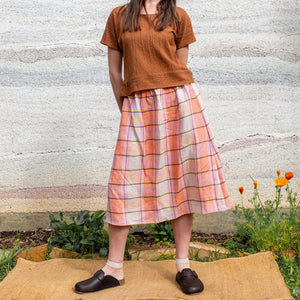
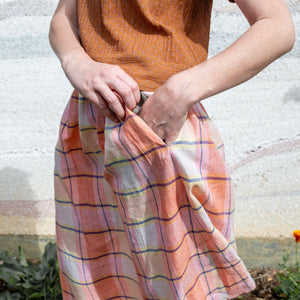
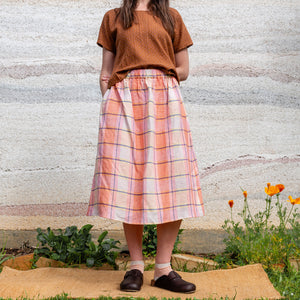
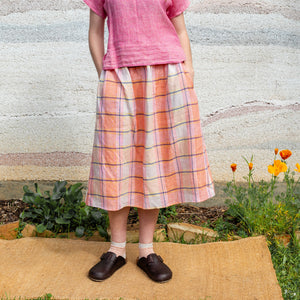
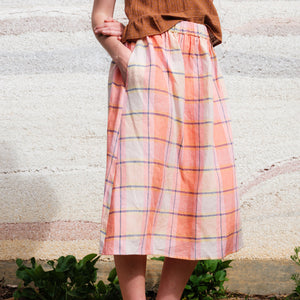
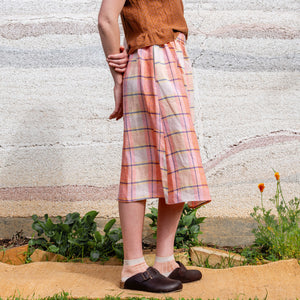
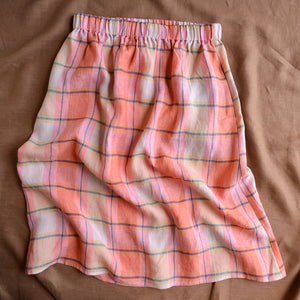
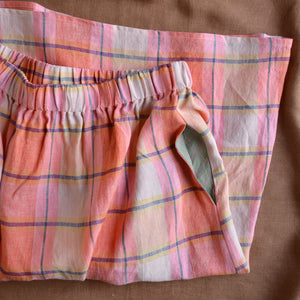
Pocket Skirt - 100% European Linen - Mon Fleur (Women S-L)
$219.00
*New! Our UMIFORM Lifewear Pocket Skirt in fresh spring colourway 'Mon Fleur': 100% European linen in a dreamy layered check in pastel and coral pinks with a hint of navy and pale yellow.
A classic simple elasticated linen skirt with pockets. East to combine with a linen or wool/silk blend t-shirt on warm days or pair with cosy wool knits and thermals in cooler weather. A versatile and truly comfortable skirt in a beautiful quality European Linen.
Small batch made in Melbourne for UMIFORM in central Victoria
Colour: Mon Fleur Pink Check
Size: S-M (8-12), M-L (12-14)
Measurements (taken flat across the front of skirt in cms. Double the measurement for circumference):
| S-M | M-L | |
| Waist (unstretched) | 36cm | 38cm |
|
|
42cm | 44cm |
| Length | 73cm | 74cm |
Tip: Compare measurements against a similar fitting favourite garment. Double measurements for circumference.
Brand: UMIFORM
Designed in: Castlemaine
Made in:Melbourne
Fabric:European Linen 100% grown and produced in small batches in Lithuania
Certifications: Oeko Tex certified
Country of manufacture: Melbourne, Australia
Fabric structure: 100% linen (160gsm)
Dyes: AZO free
100% Biodegradable: Just remove Elastic
Machine Washable: Yes
Care: Gentle machine wash, max 30 degrees with like colours.
Shake out and dry flat or line dry. Iron if desired. Linen will always seize up after washing but as soon as you start to use/wear it the fibres relax again. Never dry linen in direct sunlight as the colour can bleach and fade.
--
UMIFORM designs and makes utilitarian clothing for mothers who appreciate beautiful textiles. Handmade in small batches in Melbourne with a waste-free production - all surplus fabric going into childrenswear and mending kits.
--
More about linen:
Linen is naturally stain resistant, does not pill, and is moth repellent. It is easy to wash and is a very strong fibre. It is anti-bacterial, anti-fungal, hypo allergenic and thermoregulating, it will also absorb up 20% moisture before feeling damp.
Flax is a strong plant best grown in northern Europe. It needs little or no fertilisers and due to the local climate, little extra water. It doesn’t really require pesticides either as it can grow in poor quality soil. The Advisory Commission Report to the European Parliament stated that flax cultivation has positive effects on eco-system diversity as it allows for an “environmental pause”. One hectare of flax can retain 3.7 tonnes of CO2. Every part of the plant is used, what isn’t used to produce linen can be used to make linseed oil, paper, cattle feed or even soap.
Linen is therefore almost naturally organic. It is completely biodegradable, recyclable and due to its natural absorbency, it requires less dye than cotton. Linen therefore scores high on the ecological chart.
You may also like
